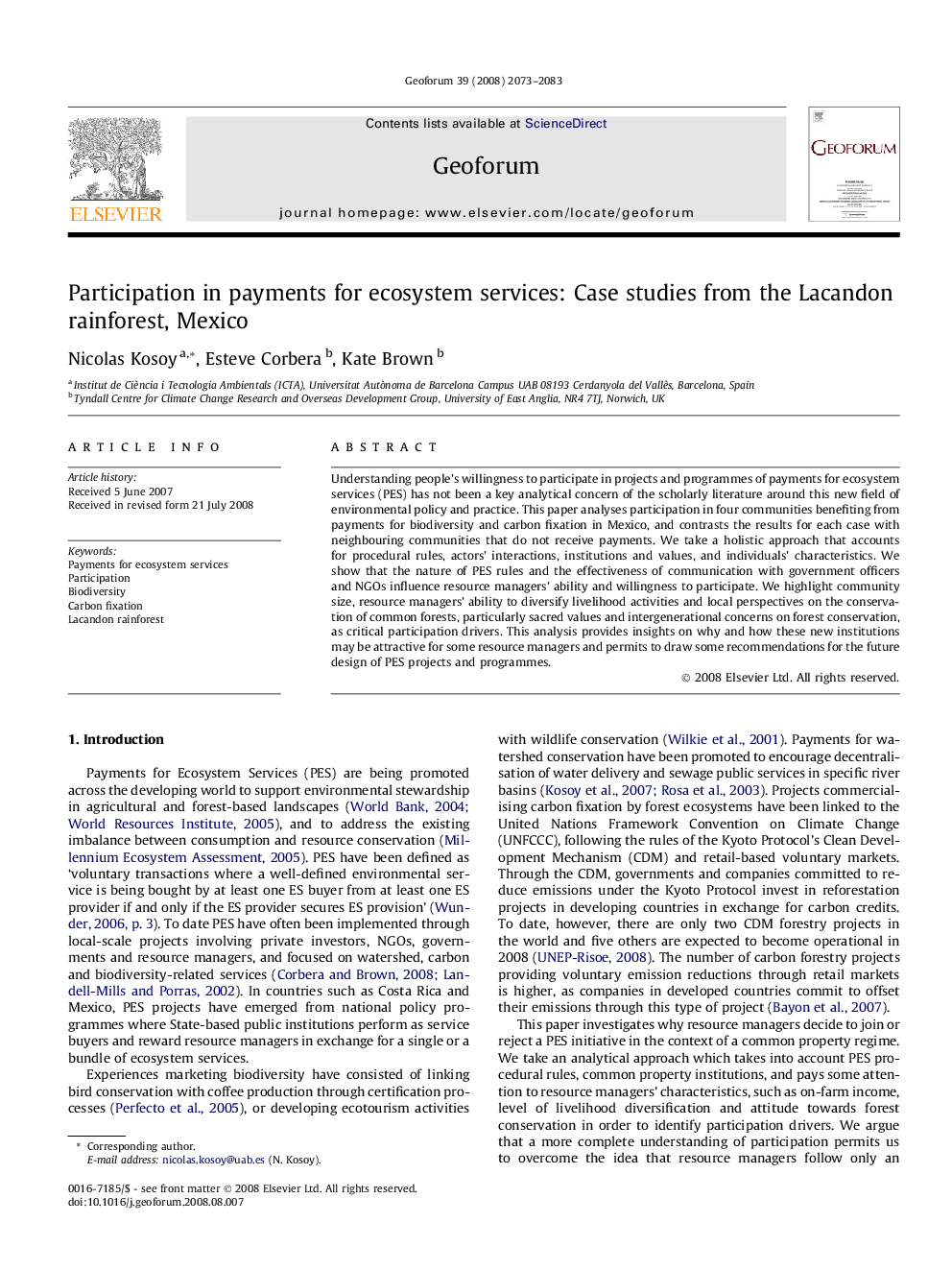| Article ID | Journal | Published Year | Pages | File Type |
|---|---|---|---|---|
| 5074857 | Geoforum | 2008 | 11 Pages |
Abstract
Understanding people's willingness to participate in projects and programmes of payments for ecosystem services (PES) has not been a key analytical concern of the scholarly literature around this new field of environmental policy and practice. This paper analyses participation in four communities benefiting from payments for biodiversity and carbon fixation in Mexico, and contrasts the results for each case with neighbouring communities that do not receive payments. We take a holistic approach that accounts for procedural rules, actors' interactions, institutions and values, and individuals' characteristics. We show that the nature of PES rules and the effectiveness of communication with government officers and NGOs influence resource managers' ability and willingness to participate. We highlight community size, resource managers' ability to diversify livelihood activities and local perspectives on the conservation of common forests, particularly sacred values and intergenerational concerns on forest conservation, as critical participation drivers. This analysis provides insights on why and how these new institutions may be attractive for some resource managers and permits to draw some recommendations for the future design of PES projects and programmes.
Related Topics
Social Sciences and Humanities
Economics, Econometrics and Finance
Economics and Econometrics
Authors
Nicolas Kosoy, Esteve Corbera, Kate Brown,
